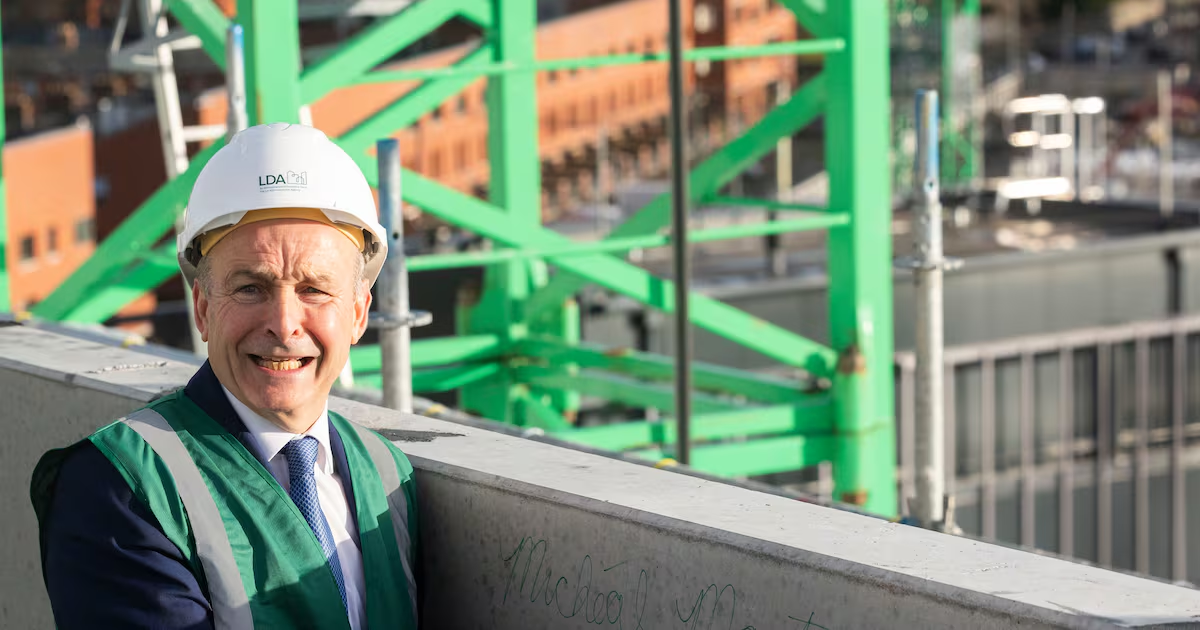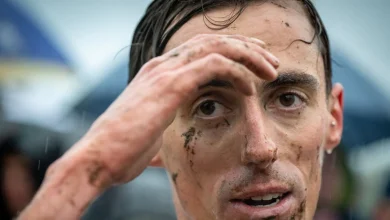€100m fund aimed at tackling childhood homelessness, but no clarity on how many will benefit

A new €100 million capital fund to buy second-hand homes to lift children out of homelessness will likely have to be repeated for each of the next five years, under a landmark Government housing plan.
Minister for Housing James Browne was not able to say how many fewer children will be homeless at the end of 2026, the first year the fund will operate.
Mr Browne was speaking alongside Taoiseach Micheál Martin, Tánaiste Simon Harris and Minister of State John Cummins at the launch of the long-awaited plan on Thursday morning, at the site of a 542 housing development in St Teresa’s Gardens in Dublin 8.
A key short-term measures in the plan, which is called Delivering Homes, Building Communities, will see local authorities draw from a €100 million capital fund next year to “fund second-hand acquisitions of homes to exit families who have been in emergency accommodation the longest”.
According to the most recent figures, there were 5,238 homeless children in Ireland at the end of September. Children make up over 30 per cent of the 16,614 people who were living in emergency accommodation in September.
Mr Browne said: “One child in homelessness is one too many. We have over 5,000 children in homelessness and that’s something I’m determined to bring an end to.” He was not able to say how many fewer children will be in homelessness at the end of 2026 as a result of the new fund.
He added: “Families are different sizes. You have families in there with one child, you have families in there with six children. And I don’t want to create a situation where we only focus on big families.
“Every one of those individual families deserve a home, so that’s why I don’t want to get into x amount of children, because that becomes the pure driver in and of itself. What I want is to get all of those families out of homelessness as quickly as possible, and that’s why homelessness is such a big part of this plan.”
The Tánaiste described the ring-fenced fund as “significant”, adding: “I imagine this is something that will need to be repeated each year during the lifetime of the plan.”
Mr Harris said the Government felt “very strongly” that there needed to be a correlation between newly built social housing and “lifting children and families out of homelessness”. The new plan commits to 12,000 newly built social homes on average each year between 2025 and 2030.
“I’ve had significant concerns for quite a period of time in terms of how social homes are being allocated and not prioritising children and families, and that changes under this plan,” Mr Harris said.
The Government is under pressure to meet a target of 300,000 new homes by the end of this decade. Under the new plan, it will no longer set itself annual housing targets for each of the next five years.
The Taoiseach defended this decision, while stating that data will still be available every year to show “what has actually been built”.
“Even when we had the annual targets on the Housing for All, and when we exceeded those targets, the response was, ‘well, we should have set the targets higher’, that they weren’t high enough. The bottom line is, we need 300,000 homes,” he said.
[ From Housing for All to Rebuilding Ireland: How did other housing plans perform?Opens in new window ]
Mr Harris said it wasn’t correct to say the Government was removing metrics, saying: “You’ll continue to have the completion figures.”
A starter-homes programme in the plan promises an average of 15,000 “affordable home supports” per year.
The plan also includes €2.5 billion in funding for the Land Development Agency (LDA), which will have an expanded role under the latest strategy for tackling the housing crisis.
During the launch, Mr Martin was asked about a recent legal challenge taken against the Greater Dublin drainage project, designed to serve about 500,000 people and facilitate new housing in the capital and surrounding regions. Mr Martin said Minister for Public Expenditure Jack Chambers will bring a proposal on “legislative response to critical infrastructure” to Cabinet in the coming weeks.
“I mean, that’s a project that cannot wait,” the Taoiseach said. “It’s absolutely essential that people have access to water. It’s very basic. We are going to do everything we possibly can to get that project and others over the line much more quickly.
“It is worth reflecting on why people out there are opposing wastewater treatment plants, which clean up the environment, clean up water. Why is there this endless sort of approach to stopping projects that are essential to society?”





